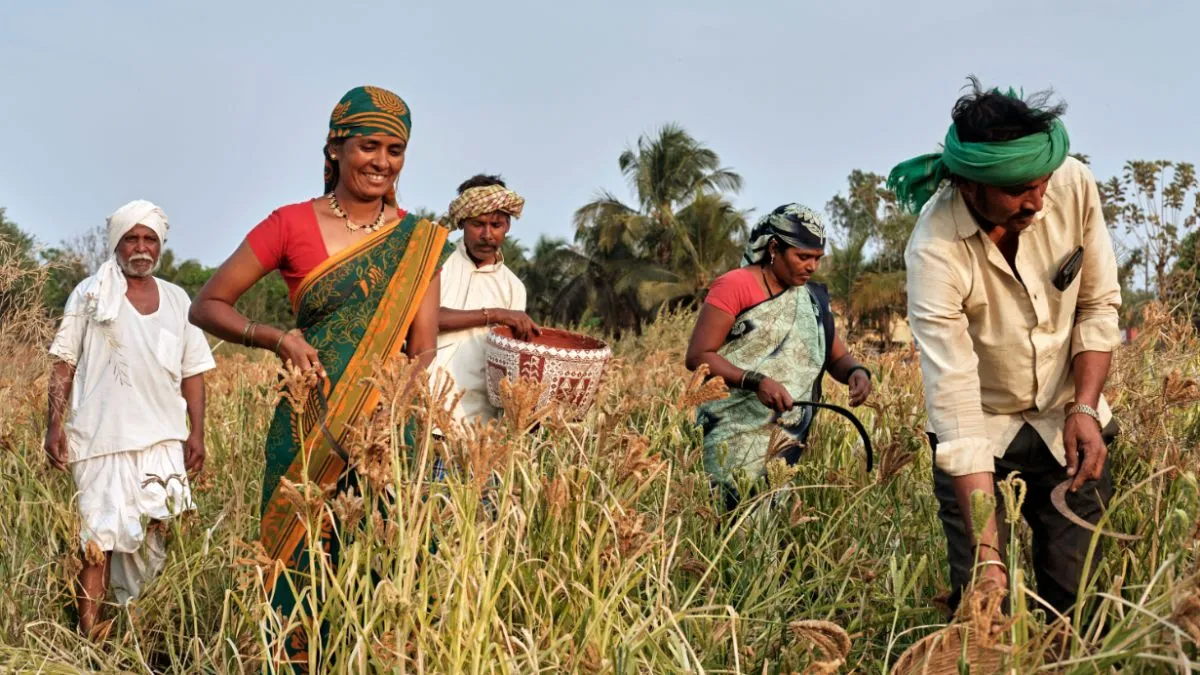A women-led initiative from India is among the winners of a prestigious United Nations award that honours nature-based solutions led by indigenous peoples and local communities aimed at promoting sustainable development and ecological resilience. The Bibifathima Swa Sahaya Sangha (Bibifathima Self Help Group) is among the 10 winners of the Equator Prize 2025 announced by the United Nations Development Programme (UNDP) on Friday.
What is Bibifathima Self Help Group?
Founded in Karnataka, the Bibifathima Self Help Group is a women-led initiative that supports over 5,000 farmers across 30 villages through millet-based multi-cropping, seed banks, and solar-powered processing. Combining traditional knowledge with regenerative agriculture and renewable energy, it restores biodiversity, boosts food security, and empowers marginalised women and youth as agripreneurs, advancing climate resilience and equity, as per UNDP.
ALSO READ: India Blasts Pakistan At UN Over Kashmir Rhetoric: ‘One Side Surging Economy, Other Side A Serial IMF Borrower’
“Combining traditional knowledge with regenerative agriculture and renewable energy, it restores biodiversity, boosts food security, and empowers marginalised women and youth as agripreneurs, advancing climate resilience and equity,” UNDP said in a statement.
Equator Prize 2025
UNDP, through its Equator Initiative, announced the winners of the Equator Prize 2025 on the occasion of International Day of the World’s Indigenous Peoples. The award is presented annually to honour nature-based solutions led by Indigenous Peoples and local communities that promote sustainable development and ecological resilience.
“On this important day, the 2025 Equator Prize winners are a reminder of the importance of honouring and recognising the vision and leadership of Indigenous Peoples and local communities. “These solutions, grounded in Indigenous knowledge and collective stewardship, are not only effective but essential to achieving a just, inclusive, and sustainable future for all,” UN Assistant Secretary-General and Director of UNDP’s Bureau for Policy and Programme Support Marcos Neto said.
ALSO READ: World Oceans Day 2025: Crucial For Climate, Food Security, UN Urges Action To Protect ‘What Sustains Us’
This year’s winners are from Argentina, Brazil, Ecuador, India, Indonesia, Kenya, Papua New Guinea, Peru, and Tanzania and showcase the power of nature-based solutions led by communities on the frontlines of climate change. The winners are selected from a highly competitive pool of over 700 nominations from 103 countries. UNDP said the 2025 Equator Prize winners exemplify this year’s theme, ‘Nature for Climate Action’, with a special focus on youth- and women-led climate action.
Their work highlights two core areas: protecting and restoring critical ecosystems to mitigate and adapt to climate change, and advancing a just transition toward inclusive, nature-based economies that create opportunities for Indigenous Peoples and local communities. Together, these initiatives safeguard biodiversity, promote food sovereignty, and build resilient communities, while honouring traditional knowledge and the essential leadership of Indigenous Peoples and local communities in sustainable development.
The other winners include Cooperativa de Mujeres Artesanas del Gran Chaco (COMAR) from Argentina, which empowers over 2,600 Indigenous women in northern Argentina’s Gran Chaco through Matriarca, a brand that transforms traditional crafts into sustainable products for global markets; and Ranu Welum Foundation of Indonesia, a women- and youth-led Indigenous organisation that empowers Dayak communities through forest conservation, cultural preservation, and media.
The winners also include Sea Women of Melanesia Inc (SWoM) from Papua New Guinea, which is an Indigenous women-led organisation that empowers women to lead marine conservation by combining traditional knowledge with modern science, and the youth-led nonprofit Sustainable Ocean Alliance Tanzania that restores Tanzania’s marine ecosystems and empowers coastal communities.
With the 2025 winners, the Equator Prize network now includes over 300 community-based organisations from 84 countries honoured since the award’s launch in 2002. Each winning initiative will receive 10,000 dollars and be recognised during a high-level online award ceremony later this year, with the opportunity to participate in global events, including the UN General Assembly and the UN Climate Change Conference (COP30) in Belem, Brazil, UNDP said.
(With inputs from agency)
